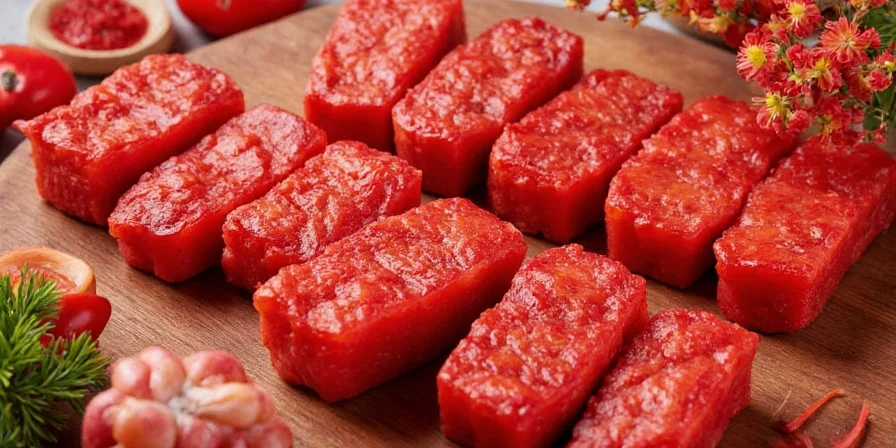What Is File Powder and Is It Safe for Cooking?
File powder is a traditional thickening agent made from the dried and ground leaves of the sassafras tree (Sassafras albidum), used primarily in Creole and Cajun cuisine to enhance gumbo. Unlike regulated sassafras roots which contain safrole (a compound restricted by the FDA), file powder uses only the leaves which contain negligible amounts of safrole and are completely safe for culinary use. This distinction makes file powder FDA-approved and widely used in Louisiana kitchens for generations without safety concerns.

Why File Powder Is Essential for Authentic Gumbo (Complete Guide)
Understanding file powder's role in Southern cooking goes beyond mere thickening. This comprehensive guide explains everything home cooks need to know about incorporating this traditional ingredient into their recipes.
Key Benefits of File Powder in Gumbo
- Natural Thickening Without Altering Flavor: Unlike roux or cornstarch, file powder creates a silky texture while contributing its own distinctive earthy, slightly citrusy flavor profile
- Cultural Authenticity: File powder has been used by Choctaw Native Americans for centuries before becoming integral to Louisiana Creole cuisine
- Unique Flavor Dimension: Provides herbal complexity that balances the spicy, meaty elements of gumbo
| Characteristic | File Powder | Cornstarch | Roux |
|---|---|---|---|
| Thickening Power | Moderate (adds flavor too) | High (neutral flavor) | High (rich, nutty flavor) |
| Browning Effect | None | None | Yes (varies by roast level) |
| Flavor Contribution | Earthy, herbal | None | Nutty, caramelized |
| Best Used In | Gumbo, soups | Sauces, stews | Gravy, gumbo, etouffee |

File Powder Frequently Asked Questions (Quick Reference)
What is file powder made from and is it legal?
File powder is made exclusively from dried and ground sassafras tree leaves. The leaves contain negligible safrole, making them completely legal and FDA-approved for culinary use unlike regulated sassafras roots.
Why can't I boil gumbo after adding file powder?
Boiling causes file powder to break down chemically, resulting in a stringy, unpleasant texture. Always add it off-heat (below 160°F/71°C) and avoid reboiling to maintain proper consistency.
How much file powder should I use per serving?
Start with 1/2 to 1 teaspoon per serving. File intensifies when cooled, so under-season initially and adjust after resting for 15-20 minutes. Excess causes bitterness and stringiness.
Can I substitute file powder with something else?
Cornstarch or roux provide thickening but lack file's distinctive earthy flavor. For closest approximation, use fresh sassafras leaves (simmered as a sachet), though they're harder to source. Okra provides similar thickening but different flavor profile.
How to store file powder properly?
Store in an airtight container away from sunlight and moisture. Properly stored file powder maintains potency for 12-18 months. Check freshness by aroma - faded herbal scent indicates reduced quality.
5 Authentic Gumbo Recipes Using File Powder (Tested Methods)
These recipes follow traditional Louisiana techniques with precise file powder incorporation:
-
Traditional Chicken and Andouille Gumbo with File Powder
Prep: 30 min | Cook: 2 hours | Serves: 6-8
Ingredients: 1 lb andouille sausage (sliced), 1.5 lbs chicken thighs, 1 cup chopped onions, 1 cup chopped celery, 1 cup chopped bell peppers, 3 cloves garlic, 4 cups chicken stock, 2 cups tomatoes, 2 tbsp file powder, 1 tsp cayenne, 1 tbsp thyme, 2 bay leaves, 1 cup okra (optional)
Method: Brown sausage and chicken separately. Sauté vegetables until soft. Combine all ingredients except file powder and simmer 1.5 hours. Remove from heat, stir in file powder, and let rest 15 minutes before serving.

-
Seafood Gumbo with Shrimp, Crab, and File Powder
Prep: 25 min | Cook: 1.5 hours | Serves: 6
Ingredients: 1 lb shrimp (peeled), 1 cup crab meat, 1/2 cup smoked oysters, 1 cup chopped onions, 1 cup chopped celery, 1 cup chopped bell peppers, 4 cloves garlic, 4 cups seafood stock, 2 tbsp file powder, 1 tbsp Old Bay seasoning, 2 tbsp Worcestershire sauce, 2 tbsp lemon juice
Method: Prepare trinity vegetables and garlic. Add stock and simmer 45 minutes. Add seafood and cook 10 minutes. Remove from heat, stir in file powder and lemon juice. Rest 15 minutes before serving.

-
Vegan Gumbo with Okra and File Powder
Prep: 20 min | Cook: 1.5 hours | Serves: 6
Ingredients: 1 cup sliced okra, 1 cup mushrooms, 1 cup eggplant (cubed), 1 cup chopped onions, 1 cup chopped celery, 1 cup chopped bell peppers, 4 cloves garlic, 4 cups vegetable stock, 2 tbsp file powder, 1 tbsp smoked paprika, 1 tbsp thyme
Method: Sauté vegetables until tender. Add stock and simmer 1 hour. Remove from heat, stir in file powder. Rest 15 minutes to allow flavors to meld.

-
Duck and Sausage Gumbo with File Powder
Prep: 25 min | Cook: 2.5 hours | Serves: 6
Ingredients: 2 duck breasts (sliced), 1 lb smoked sausage, 1 cup chopped onions, 1 cup chopped celery, 1 cup chopped bell peppers, 4 cloves garlic, 4 cups duck or chicken stock, 2 tbsp file powder, 1 tbsp hot sauce, 1 tbsp thyme
Method: Render duck fat and brown meat. Sauté vegetables in duck fat. Add stock and simmer 2 hours. Remove from heat, stir in file powder. Rest 20 minutes for optimal flavor development.

-
Thanksgiving Leftover Turkey Gumbo with File Powder
Prep: 20 min | Cook: 1 hour | Serves: 6
Ingredients: 2 cups leftover turkey, 1 lb smoked sausage, 1 cup chopped onions, 1 cup chopped celery, 1 cup chopped bell peppers, 3 cloves garlic, 4 cups turkey or chicken stock, 2 tbsp file powder, 1 tbsp thyme, 2 bay leaves
Method: Brown sausage. Sauté vegetables until soft. Add stock and simmer 45 minutes. Add turkey and heat through. Remove from heat, stir in file powder. Rest 15 minutes before serving.

Professional File Powder Usage Techniques (Chef-Tested)
- Optimal Timing: Always add file powder after removing gumbo from heat (below 160°F/71°C) to prevent stringiness
- Proper Incorporation: Whisk file powder into 2-3 tablespoons of cold water first, then stir into gumbo for smooth integration
- Flavor Development: Allow gumbo to rest 15-20 minutes after adding file powder for flavors to fully integrate
- Storage Best Practices: Keep file powder in an airtight container away from light - refrigeration extends shelf life to 18 months
- Quality Check: Fresh file powder has a vibrant green color and distinct herbal aroma - faded color indicates age

File Powder vs. Fresh Sassafras Leaves: Complete Comparison
While both come from the same plant, their usage differs significantly in traditional cooking:
| Feature | File Powder | Fresh Sassafras Leaves |
|---|---|---|
| Primary Use | Thickening + immediate flavoring | Subtle flavor infusion (like bay leaf) |
| Preparation Impact | Instant thickening effect | Requires 30+ minutes simmering |
| Texture Result | Silky, smooth consistency | No textural change |
| Availability | Widely available in spice sections | Seasonal, regional availability |
| Shelf Life | 12-18 months (proper storage) | Short-term fresh use only |

Perfect Serving Techniques for File Powder Gumbo
Maximize your file powder gumbo experience with these professional serving methods:
- Rice Preparation: Use long-grain white rice cooked with 1 bay leaf for subtle flavor enhancement
- Layering Technique: Place rice in bowl first, then ladle gumbo over top to maintain distinct textures
- Temperature Control: Serve at 165°F minimum - file powder's texture degrades below 140°F
- Garnish Strategy: Add fresh green onions just before serving to provide color contrast and fresh flavor note
- Accompaniment Pairing: Serve with French bread that's been lightly toasted with garlic butter
- Storage Method: Refrigerate without rice; add fresh rice when reheating to prevent mushiness

File Powder Storage Guide: Preserving Maximum Flavor
Proper storage maintains file powder's distinctive flavor and thickening properties:
- Use dark glass or opaque containers to block light exposure
- Store in refrigerator for extended shelf life (up to 18 months)
- Keep away from strong-smelling spices to prevent flavor transfer
- Include silica gel packet to control moisture (replace quarterly)
- Label container with purchase date for freshness tracking
- Test freshness by aroma - vibrant herbal scent indicates quality

Final File Powder Insights for Perfect Gumbo
File powder remains the authentic thickener that defines traditional Louisiana gumbo. By understanding its proper usage—adding off-heat, using the right quantity, and storing correctly—you'll achieve restaurant-quality results at home. This centuries-old ingredient bridges cultural heritage and culinary science, providing both texture and distinctive flavor that modern alternatives cannot replicate. Whether you're making chicken, seafood, or vegetarian gumbo, file powder elevates your dish from ordinary to extraordinary when used correctly.











 浙公网安备
33010002000092号
浙公网安备
33010002000092号 浙B2-20120091-4
浙B2-20120091-4